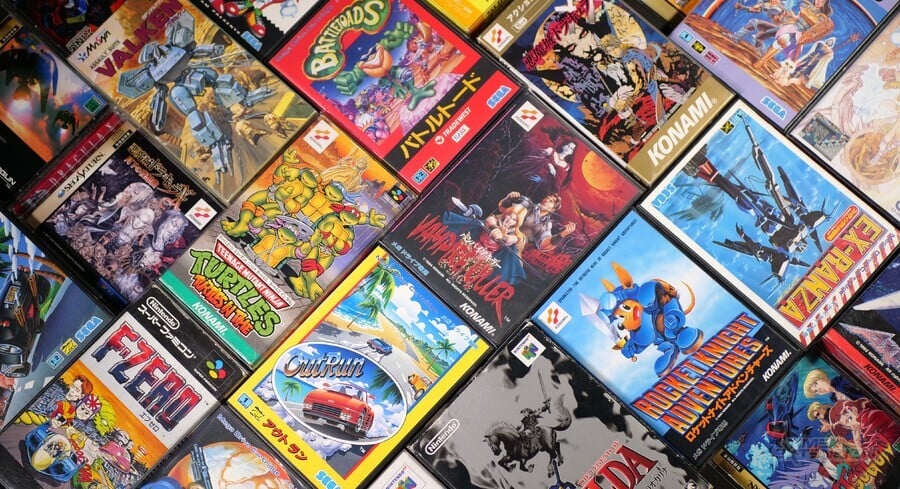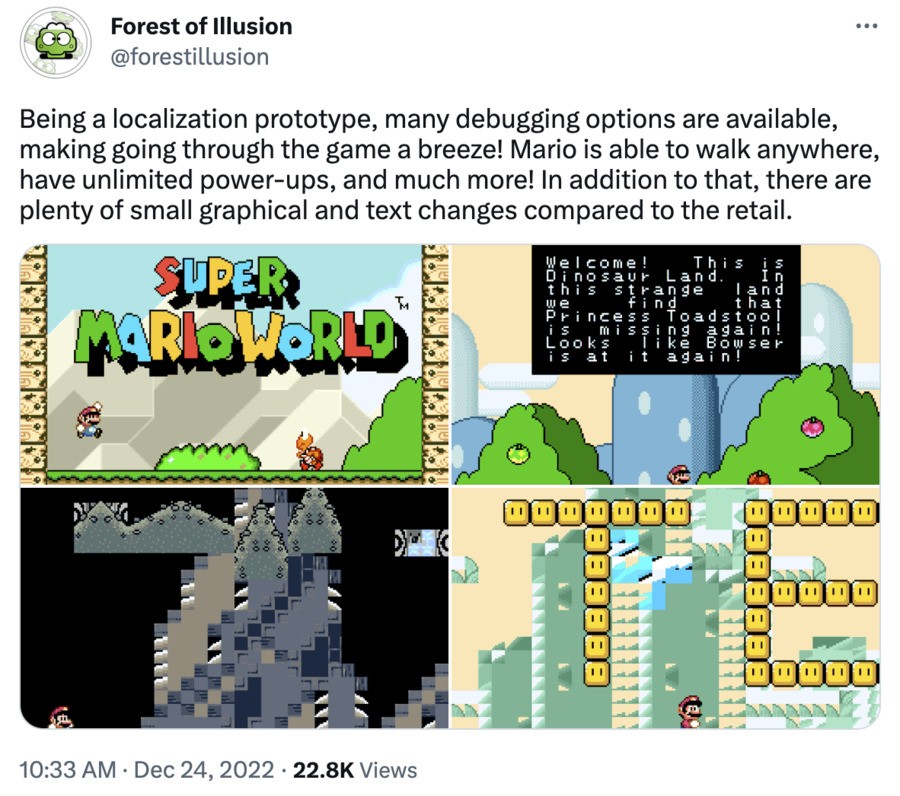
Last week, we reported on the sad news that video game preservation site Forest of Illusion was closing its doors, effectively removing years of tireless and valuable research and historical data from the internet. In case you aren't familiar with the site and its work, its team was responsible for digitally preserving some critical parts of Nintendo history – history that, without the dedication of such individuals, would simply vanish into the mists of time.
While there's been a lot of very passionate discourse around the closure over the past week (with many blaming Nintendo for the move, something Forest of Illusion's owners were quick to deny), it shows just how dangerous the world of video game preservation is. Considering the video game industry is now one of the biggest in the world, it's remarkable that this kind of work often falls on small, independent groups or individuals who are acting without the support of major companies and often go woefully underfunded (if, indeed, they have any funding at all).
The entire preservation ecosystem often relies too heavily on individuals, and it’s unsustainable... Video game preservation should not be this fragile!
The Video Game History Foundation's Kelsey Lewin took to Twitter shortly after the announcement and summed up the delicate nature of the situation perfectly. "The entire preservation ecosystem often relies too heavily on individuals, and it’s unsustainable," she says. "It’s really unfortunate that FOI won’t continue. They did amazing work! But I also can’t be upset that the individuals doing this work tirelessly, for free, under legal risk, do not want to continue! That’s pretty reasonable! What’s not reasonable is the situation we’re in. Video game preservation should not have to come to panic like this. All morning I’ve watched different discords scramble to make sure everything FOI output is still retrievable from archive.org. Even if it all is — that’s still now a single point of failure! What if something wasn’t scraped before FOI went offline? What if archive.org is asked not to host it anymore, or worse? Video game preservation should not be this fragile!"
As Lewin so rightly points out, the pressure of legal action makes preservation a risky business to be in. While the people behind Forest of Illusion have made it very clear that legal action from Nintendo was not the reason why the site was taken down, the 'Nintendo Ninjas' meme does shine a light on the crushing potential of legal pressure these people are under 24/7. When preserving any kind of video game history, you're dealing with digital information that is almost certainly under copyright. While Nintendo is never going to publically release an obscure prototype of Zelda: Link's Awakening on the Game Boy or a Japanese store demo for New Super Mario Bros, it has every right to protect the copyright of any IP it owns. Mario is one of the biggest entertainment brands on the planet, so it stands to reason that the company would be incredibly protective over anything related to that brand, especially things it does not directly control.

You can be almost certain that Nintendo doesn't want you to peek behind the curtain of its development process via these unreleased and unfinished software variants – but the consequence of that is that we could lose access to critical historical artefacts which show why particular choices were made in games and hardware, or see features that were abandoned or cut due to financial reasons. Stuff like concept and production artwork is readily available and officially sanctioned, so companies like Nintendo clearly see the value in making some of this stuff public – but there will be many, many more elements of the development process which it's unlikely to release in a commercially viable form, and that's where preservation needs to step in. Without cataloguing and documenting these things, it's impossible for future generations to understand the process of how they were made – and why. That might not seem like a pressing issue today, but in 100 years, it could become incredibly important from an academic perspective.
Amid all of this, we also need to remember that Nintendo is a business first and foremost, and not all businesses see the value in preserving their data – especially when there's no tangible commercial benefit. Case in point: once upon a time, the BBC – one of the most famous broadcasting names in the world – didn't even preserve the shows it created; recordings would be wiped so the tapes could be re-used for future productions, and, as a result, the BBC scrubbed from existence the original source taps for shows like Doctor Who, Z-Cars and The Avengers. While that was obviously some time ago – an era where the BBC couldn't possibly have predicted the arrival of the 'watch it again' media like VHS tape, DVD and the internet and therefore was simply doing what made financial sense – it shows that sometimes, even the companies behind this history are dismissive about its value unless there's a monetary upside to making an effort in the first place. In the world of movies, the story is largely the same; a 2013 report by the Library of Congress found that around 75% of silent movies produced by the major American studios have been lost due to a lack of adequate preservation.
Once institutions can see that putting effort and funding behind video game preservation in a useful, sustainable way is possible — I think they’ll do it!
So, how do we fix this? How can we ever have a different outcome when commercially-minded companies own the copyright to the material and data you're attempting to preserve and make available to everyone, for free? How can individuals and small groups like Forest of Illusion possibly continue their work if funding is insufficient and the threat of legal action hangs over them constantly, like the sword of Damocles?
Lewin admits there's no silver bullet at the moment, but says steps are being taken to make preservation less about burdening vulnerable individuals and more about sharing the load at an institutional level, where legal risk can be mitigated and the hard work protected. "Right now, I’m most focused on how we can take steps to make all of this easier and less legally risky to do, period," she posted on Twitter. "Especially at an institutional level. We need an ecosystem, where the burden is SHARED. Libraries, archives, individuals, etc, should all be able to do this work, and have the tools to do it. I want a world where you can learn from prototype games at like, 100 different libraries. Online, even! I’ve said this before, but we have several difficult steps ahead to get to this point. The first — games should be treated like books, movies, software, etc, within institutions — we’re working on right now with the Software Preservation Network. Once institutions can see that putting effort and funding behind video game preservation in a useful, sustainable way is possible — I think they’ll do it!"
The good news is that some companies are dealing with this problem early. For example, Something We Made Games, the developer behind the superb TOEM, recently announced that it had donated the game to the National Library of Sweden, making it available to researchers for free and ensuring that it will be preserved forever. But noble acts like this only benefit the games of today; there are countless titles released over the past 40 years which require similar documentation and preservation – and, as Lewin so rightly states, "We’re working on it, but the work is just beginning."
(By the way, Lewin talks more about this topic with the equally brilliant Frank Cifaldi on the Video Game History Foundation podcast, and it's well worth a listen if you're interested in the field of video game preservation.)
